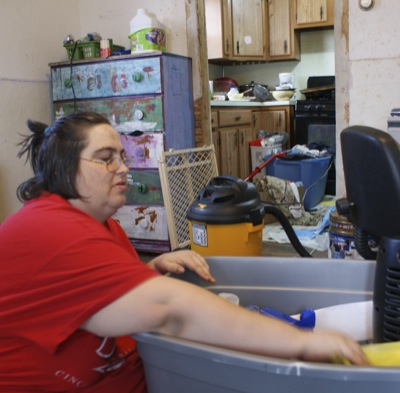Saturday, January 28th, 2012
Mercer County to get windfall from ag taxes
County property tax income to rise due to farmland CAUV change
By Nancy Allen
Mercer County expects to collect over 6 percent more in property taxes this year than it did in 2011.
Farmland owners will see the biggest increase on their bills due mostly to a change in the way the state calculates Current Agriculture Use Value (CAUV), Mercer County Auditor Randy Grapner said.
The county collected $38.76 million in property taxes in 2011 and expects to collect $41.31 million this year, a projected 6.6 percent increase.
"In regard to CAUV, there was nearly a 38 percent increase in the assessed value of farm ground," said Grapner. "The total assessed value for residential properties increased .16 percent."
The auditor's office uses assessed value to calculate property taxes.
The overall assessed value for all types of parcels in the county increased just more than 7 percent from $804.58 million in 2010 to $862.04 million in 2011. Grapner attributes most of the increase to the CAUV change.
The county also performed a revaluation on all property, which it is required to do every six years. Less detailed revaluations are done every three years. The revaluations help local governments determine assessed property values and property taxes. Mercer County reappraised and revalued 24,476 parcels.
After the reappraisal, 50 percent of the total parcels in the county experienced an increased market value, 39 percent decreased and 11 percent were unchanged, Grapner said.
Most knew about the possible tax increase from media reports and an informational program, he said, but some were still surprised. One Marion Township farmer paid $489 in property taxes on about 60 acres of farmland in 2011. This year that same farmer was billed $1,091 due to the new CAUV.
"Our farmers are certainly concerned," he said. "For some it's a lot all at once."
Not all farmers' tax bills increased, Grapner said, because other factors, such as depreciating buildings or expired tax levies, may have decreased the bill overall.
Established by the Ohio General Assembly in 1974, CAUV taxes farmland on its production value rather than a higher fair market value. The CAUV values are set by the state tax commissioner and readjusted every three years. The complex CAUV formula is based on several factors - soil types, crop yields, inputs such as fertilizer, cropping patterns, and the kind of crops produced - that determine how much farmers pay.
The primary factors that contributed to the jump in CAUV are high commodity prices and low interest mortgage rates, said Larry Gearhardt, former director of local affairs at Ohio Farm Bureau. The yields per acre calculations obtained from USDA had not been updated since 1984, he said.
Gearhardt said the CAUV formula was created when interest rates were high and yields less. Now interest rates are low and yields have increased, he said.
Gearhardt said the CAUV change also will affect those who farm rented land because the tax increase will be passed to them in higher land rent.
"It's certainly going to cause them to revisit the amount of money it takes for land costs or the amount they pay in cash rent," Gearhardt said.
Even with the CAUV change, the tax relief provided by the program is still a good deal for farmland owners, he said. The program was created to give farmers incentive to keep the land in production.
"In 2010 the average (farm) landowner in Mercer County paid 15 percent of fair market value," Gearhardt said. "That will probably go up to about 30 percent, so it's still providing a 60 to 70 percent reduction from the fair market value."
Owners who feel there is an error can file a complaint at the Mercer County Auditor's office now until March 31. The office usually receives about 65 complaints a year.
"We're dealing with lots of questions," he said. "We want to be accurate in our values and we are trying to be conservative in our new appraised values."





